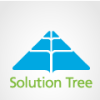
The question of “Why Assess?” is one that is posed in schools and districts everywhere. It’s important to challenge educators to think about their assessment practice and how they derive information about student progress. If the purpose of assessment is merely to rank and sort, then little needs to change from the assessment practices of previous generations. If, instead, the purpose is to focus on student learning, then educators need to examine whether their current practice is aligned with that outcome. Read more

 6
6





